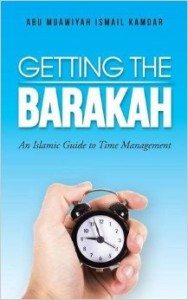Alhamdulillah, I recently started a new job. This will affect the amount of time that I will be able to dedicate to Islamic Self Help. Despite my busy new schedule, Islamic Self Help will remain an important resource through which I will share my personal opinions, articles, books, and courses. The website will continue to grow but I will spend less time per week on it than I previously used to.
Leaving IOU
Alhamdulillah, I began studying at IOU in 2007, started volunteer work at IOU in 2008, and became a full-time employee of IOU in 2010. I even completed my BAIS at IOU in 2014. Over the past 13 years, IOU has played a central role in shaping my young adult life. But all good things come to an end, and I have reached a point in my life in which I wish to move on and pursue a different career path.
Over the past five years, my goals have pushed me more towards writing and research on contemporary issues. Alhamdulillah, an opportunity has presented itself for me to do this full-time and I cannot let this opportunity go. For this reason, I decided to leave IOU so that I can focus on my career in research and writing. I wanted to make this public so that people know that the reason I am leaving IOU is nothing negative. So please do not read anything into my leaving the organization.
Alhamdulillah, I have been treated exceptionally well at IOU over the past decade and it was not easy to make the decision to leave. I will continue to support IOU’s great work, and represent them as a graduate of their BAIS program. I also still encourage people to sign up for their courses if you are looking for a good online campus for Islamic Studies. I really want to spend the next decade (and probably the rest of my life) writing, and that will be my primary focus moving forward.
Joining Yaqeen Institute
Alhamdulillah, in November 2020 I started my new job as a research manager at Yaqeen Institute for Islamic Research. This new role will facilitate my goal of spending my life writing and researching contemporary Islamic topics. I am really excited to start this new job and to contribute to this amazing website. I ask Allah to put barakah in this new role and make it a means of benefit for the entire ummah, and a source of continuous reward for all those involved.
As I get accustomed to my new job, I will not blog as much as I used to for the first few weeks. Once I get accustomed to my new work schedule, I will continue to make time daily to contribute to Islamic Self Help via videos, articles, books and courses. In the meanwhile, the Aqeedah al-Tahawiyah course will continue as usual with four more videos releasing over the next four weeks.



